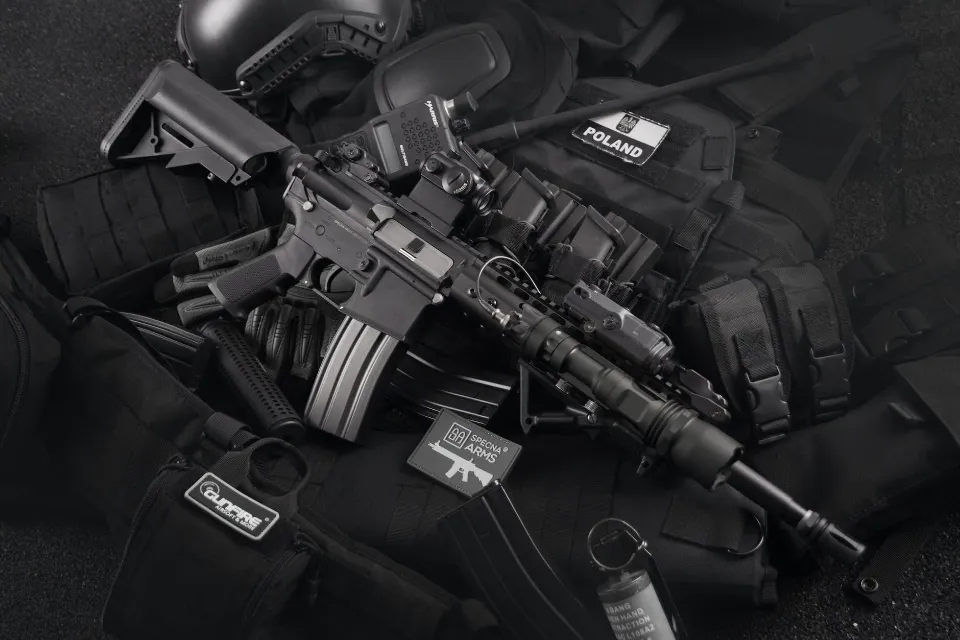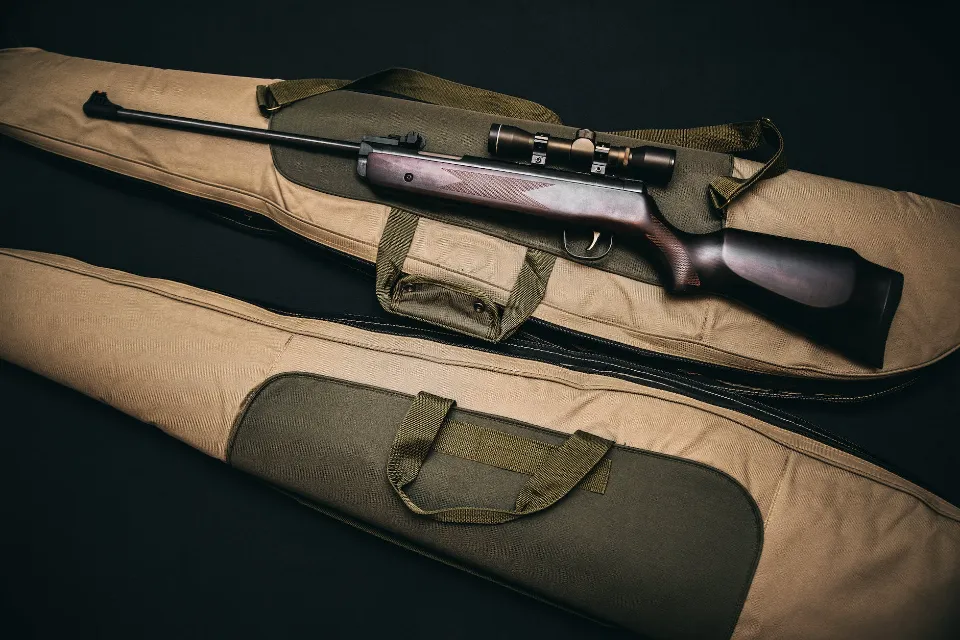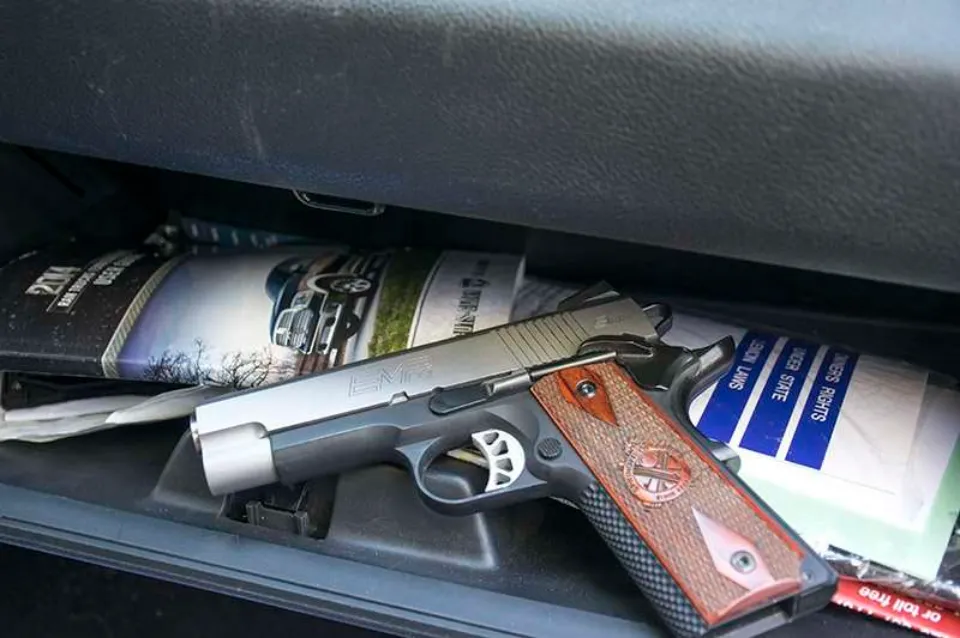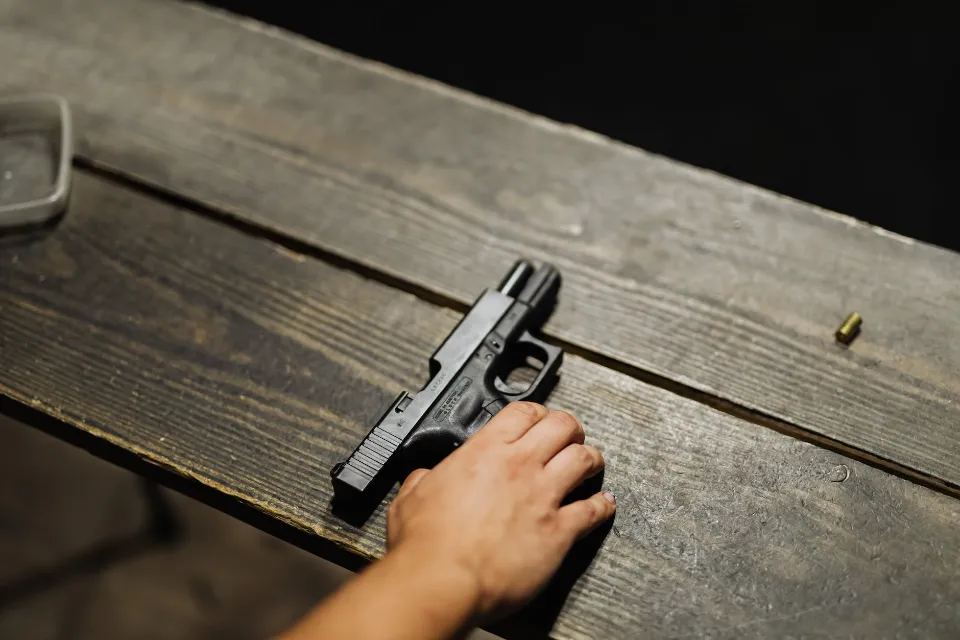Is it legal for you to carry a handgun across state lines while traveling? A few important things should be remembered.
A common question among gun owners, especially when it comes to summer travel, is “Can I travel with my firearm?” and the answer is that it depends. It’s a good idea to take the time to learn the laws regarding traveling with firearms before you decide you can go ahead and pack your pistol and leave your Second Amendment sanctuary state.
There are a few things that you need to do to make sure that this is done properly. Find out what difficulties you might experience and how to make sure your road trip is trouble-free by reading on.
Can I Take My Gun on a Road Trip in the US?
Guns are permitted in cars, but there are some restrictions. A concealed carry permit is frequently required within the state. Keeping it unloaded, cased, and locked in an inaccessible location is necessary if you are crossing state boundaries. The need for separate storage of ammunition arises. Before leaving on your trip, remember to read the local laws.
Do not assume that a concealed carry permit you have is recognized in all 49 other states. While it is true that some states accept licenses and permits from other states, it is still a good idea to check before you leave because failing to do so could result in a fine or an arrest.

What Do I Need to Know About Gun Laws and Road Trips?
Here are four common misconceptions or mistakes to avoid when traveling with a gun:
Mistake #1: Assuming Your License Or Permit is Recognized in the Other 49 States
The first mistake made by gun owners who travel with firearms is assuming one state’s license or permit to carry a weapon will be recognized and honored in the other 49 states. This is simply untrue and may land you in jail if you are stopped by law enforcement in the incorrect location and with the incorrect weapon, whether it be your firearm or something else entirely.
Not all concealed carry permits are accepted or given reciprocity in every state. Both concealed carry and gun laws vary from state to state. Never assume that just because you have a license or permit from your state of residence, you are allowed to carry.
Mistake #2: Assuming Your Handgun is Legal Throughout the United States
The second misconception is that since a person’s handgun is legal in their state, it follows that the firearm must also be legal across the country. Again, every state has different laws regarding firearms, ammunition types, and even magazine sizes.
You risk being taken into custody if you are stopped by law enforcement while carrying a handgun that is illegal in the state you are visiting. You shouldn’t travel with guns without first becoming familiar with the gun laws of every state you intend to visit along with those in your final destination.
Mistake #3: Assuming State Laws Don’t Vary
Sometimes people think, “I live in the great, gun-friendly State of (X), and if I keep following their gun-related laws, I will be in good shape when I travel to or visit state (Y).” People might also think they can bring guns with them on vacation, even if they don’t plan to cross state lines. This is false.

If you’re visiting another state, you’re subject to their laws and their prison sentences. This means that if you want to bring your gun to another state, you must be aware of and compliant with that state’s gun laws. Again: the gun laws in your state of residence don’t supersede or otherwise influence the gun-related laws of an entirely different state.
Mistake #4: Thinking the Federal Safe Passage Act Will Prevent An Arrest
The final misconception is that the Federal Safe Passage Act will prevent an arrest if you’re caught in an anti-2A state with a firearm you’re not legally allowed to have in that state. Maybe you think, “My travel plans and firearms will be protected by Safe Passage because this is my car and they are locked in a gun case while in states where they are not permitted.” It’s untrue to believe that the Safe Passage Act will protect you from being fined or detained.
Tips for Driving Safely With a Gun
With this knowledge, you should be able to comply with some of the legal requirements when transporting a firearm. But what about preparing your gun for the trip and storing it securely? Here are some of the tips you can use:
- Put a metal strip there to hold it in place. You’ll always know where it is and it won’t move around in the car thanks to this.
- Lock the gun. You might not be required to lock the gun away while you are driving if your state has concealed carry regulations. However, it’s still a smart move. After all, you don’t want to take the chance that carjackers could use your weapon against you. If there will be kids in the car, it is also crucial.
- Store away from documents. Your official documents should be kept in a separate location from the gun in your car in case you are stopped. Being seen reaching for a weapon is the last thing you want to do because this could quickly lead to a fatal miscommunication with law enforcement.
- Keep it in a holster. Should cover the trigger, then. Being unintentionally shot by a gun is every gun owner’s worst nightmare. If it is shaken or twisted in a cable, this might simply occur.
- Use a strong lock. Gun theft is a significant issue. Make sure the lock metal is thick enough to discourage people from attempting to cut through it if you must keep a gun in an easily accessible lock.
- Stay alert. You definitely don’t want to have to use your weapon. However, you must be prepared to use it to defend yourself if trouble does arise. Staying alert while traveling is necessary.

What About the Federal Safe Passage Act?
Even though there is no nationwide law that makes rules and regulations easy to remember, there are a few options you have for protection. You may be familiar with the Federal Safe Passage Act, for instance. This act will provide you with some measure of protection, but it is not a get-out-of-jail-free card.
You are permitted to have an unloaded firearm and ammunition in a locked container with hard sides as long as it is in your trunk if you are crossing one state between your home state and your destination state. If you want to safeguard yourself, you must pay attention to every detail and check every box.
Ensure that your handgun is locked in a container with hard sides that is kept in your trunk. Other safety precautions to take include making sure your gun is unloaded, keeping ammunition and firearms separate from each other, and making sure your handgun is locked up. If you don’t comply with all of these requirements and your handgun is prohibited in that state, you risk being detained.
Who Can Transport Guns across State Lines?
This right won’t be available to all groups. These include:
- People who have been found guilty, or charged with felonies
- Users of illegal drugs
- Those without citizenship in the United States
- People who have committed domestic violence
- People who have been involuntarily put into a mental institution
- Dishonorably discharged military veterans
You shouldn’t have any issues traveling interstate with your guns if you aren’t a member of one of the aforementioned groups.
When to Follow State Gun Laws?

There is another issue to consider. Travelers are intended to benefit from the protections offered by the McClure-Volkmer Act. However, there are some situations where you might have to abide by state laws, which might impose more limitations on what you can do.
When you spend a lot of time in the state, this frequently occurs. It may be necessary to adhere to state law if you intend to spend the night in a motel. For instance, New York is renowned for its strict gun regulations.
There are numerous instances of individuals who stayed the night at a motel and then were detained for possessing a firearm. It’s wise to familiarize yourself with local laws before traveling.
It should be noted that some states will view carrying a gun while traveling, even if it is stored securely, as an affirmative defense. This indicates that it will be up to you to demonstrate that you adhered to the law. Here are some of the states where you will need to exercise more caution:
- New York
- New Jersey
- Hawaii
- California
- Connecticut
- Maryland
- Massachusetts
- Rhode Island
You should try to avoid traveling through these states with your gun if at all possible. Your road trip may now be slightly longer as a result. If you are discovered with a gun in one of these states, it will spare you a lot of trouble. There is a good chance that the police will question you, and you might even wind up in jail.
Conclusion: Take Your Gun on a Road Trip
Doing your research before leaving for a trip to another state is what we advise. Before departing from home, look up the gun laws in each state you intend to visit. You risk having a bad experience if you carry a gun or transport a gun in a manner that is prohibited by the state you are visiting, even if it is only a small portion of that state.
Furthermore, keep in mind that even if your handgun is legal in your state, it is not necessarily legal in every other state. Similar to concealed carry laws, different states have different laws regarding what weapons are legal and what weapons are illegal.
FAQs
Can I Take My Gun on a Road Trip in Texas?
Texas does not have any regulations governing the transportation of long guns (such as rifles or shotguns).
Can I Walk Around With My Gun Loaded?
If you do have a concealed carry permit, you may carry or keep your weapon fully loaded where ever you’d like. This can be tucked away on your hip, in the glove box, in your bag, etc.





